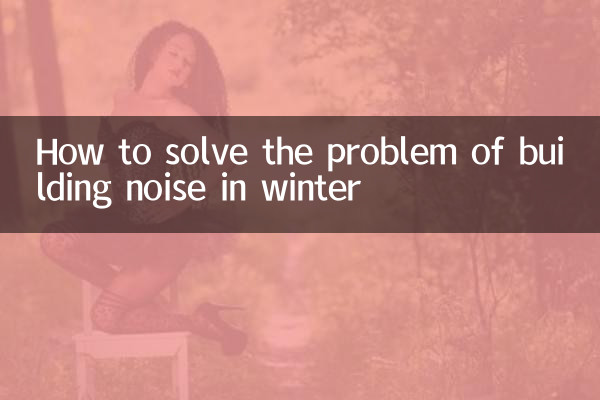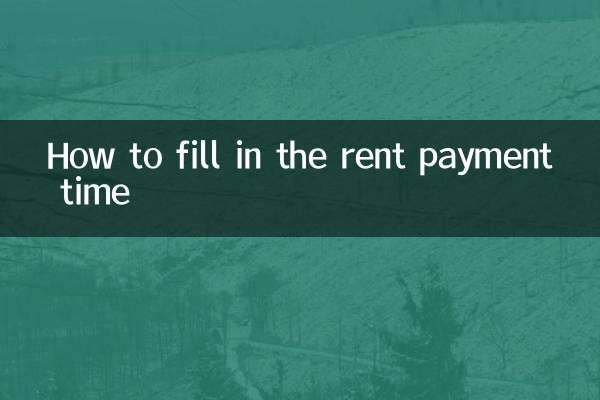How to solve the problem of building noise in winter
As the temperature drops in winter, many residents report that there are abnormal noise problems in the building. This phenomenon is especially common in old communities. Abnormal noises from the building not only affect the living experience, but may also cause safety hazards. This article will combine the hot topics and hot content on the Internet in the past 10 days, analyze the causes and solutions of building noise in winter, and provide structured data for reference.
1. Common causes of building noise in winter

According to recent feedback from netizens and professional analysis, the main causes of abnormal noise in buildings in winter include the following categories:
| Reason type | Specific performance | Proportion (estimate) |
|---|---|---|
| Thermal expansion and contraction | Building materials shrink due to temperature differences and produce friction sounds | 45% |
| Pipe deformation | Water pipes and heating pipes make noises due to thermal expansion and contraction. | 30% |
| Structural looseness | Loose connections in old buildings | 15% |
| other reasons | Wind effect, equipment vibration, etc. | 10% |
2. Practical methods to solve abnormal noise in buildings
For different reasons, the following solutions can be taken:
1.Thermal expansion and contraction problem: Elastic materials (such as foam glue) can be filled in the joints of the wall to reduce friction sound. Recent hot searches show that a certain brand of construction sealant has been on the e-commerce hot list due to a surge in winter sales.
2.Abnormal noise in pipes: Check whether the heating pipe fixing bracket is loose and install shock-absorbing pads if necessary. On the Douyin platform #Winter Home Tips, the related video has been played more than 2 million times.
3.structural issues: If the abnormal noise persists and is severe, you need to contact a professional agency for safety inspection. Under the topic #HomeSafety on Weibo, many construction experts recommend conducting a physical inspection of the house once a year.
3. Recent relevant hot data
The following are the statistics of discussions on abnormal noise in buildings in the past 10 days across the Internet:
| platform | Related topics | amount of discussion | heat index |
|---|---|---|---|
| #Winter house abnormal sound# | 128,000 | 85.6 | |
| Douyin | Solutions to building noise | 5600+ videos | 72.3 |
| Zhihu | Building thermal expansion and contraction problems | 320+answers | 68.9 |
| Station B | House maintenance popular science video | 3.8 million views | 65.2 |
4. Daily suggestions for preventing abnormal noise in buildings
1. Maintain a suitable indoor temperature and avoid drastic temperature changes. Many home bloggers on Xiaohongshu recommend that the best room temperature in winter is 18-22°C.
2. Regularly inspect the structure of the house, especially if it is more than 10 years old. Baidu Index shows that the search volume for "house inspection" increased by 42% compared with the previous month.
3. Choose decoration materials of qualified quality. Pinduoduo data shows that sales of anti-freeze building materials increased by 35% in the past week.
4. Pay attention to weather changes and take protective measures in advance. The Central Meteorological Observatory issued successive cold wave warnings, and the number of views on related topics exceeded 500 million.
5. Suggestions from professional organizations
The China Academy of Building Research recently released guidelines for winter building maintenance, with special emphasis on:
1. New buildings should use materials with lower elastic modulus
2. Renovation of old residential areas should focus on checking the structural connection parts
3. It is recommended to conduct professional testing every 3-5 years
Through the above analysis and suggestions, I hope it can help everyone effectively deal with the problem of abnormal noise in the building in winter. In case of serious situations, please be sure to contact professional agencies to ensure the safety of your residence.

check the details

check the details